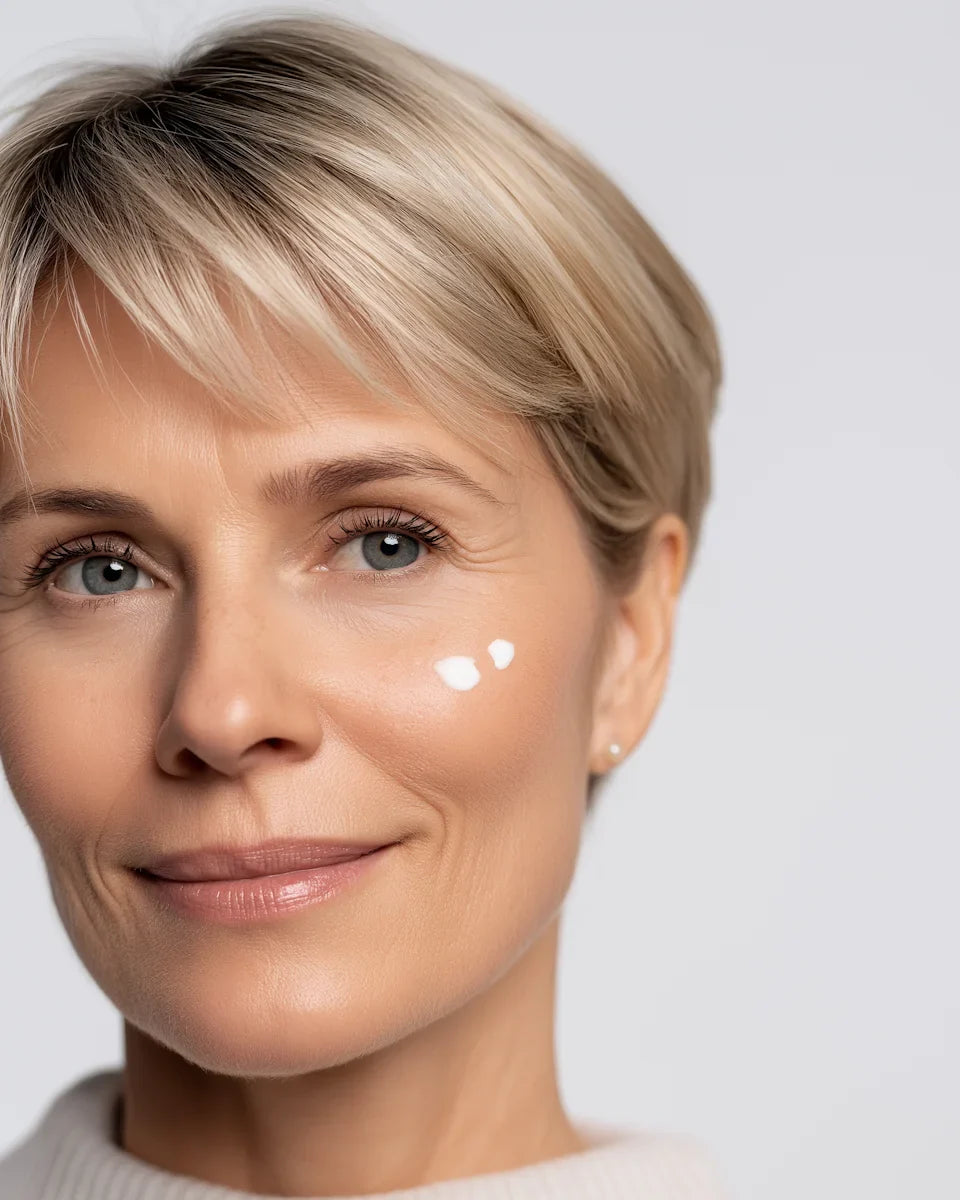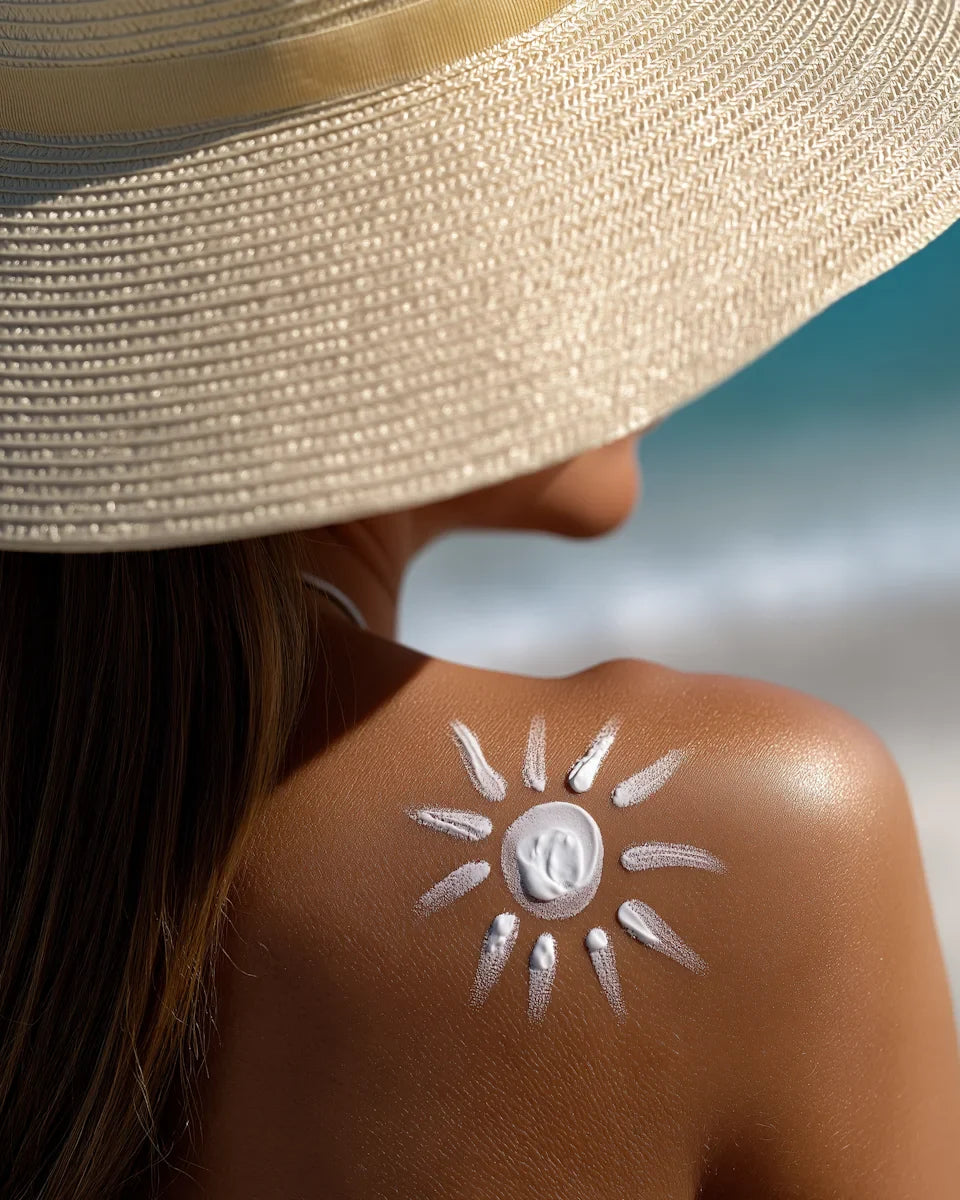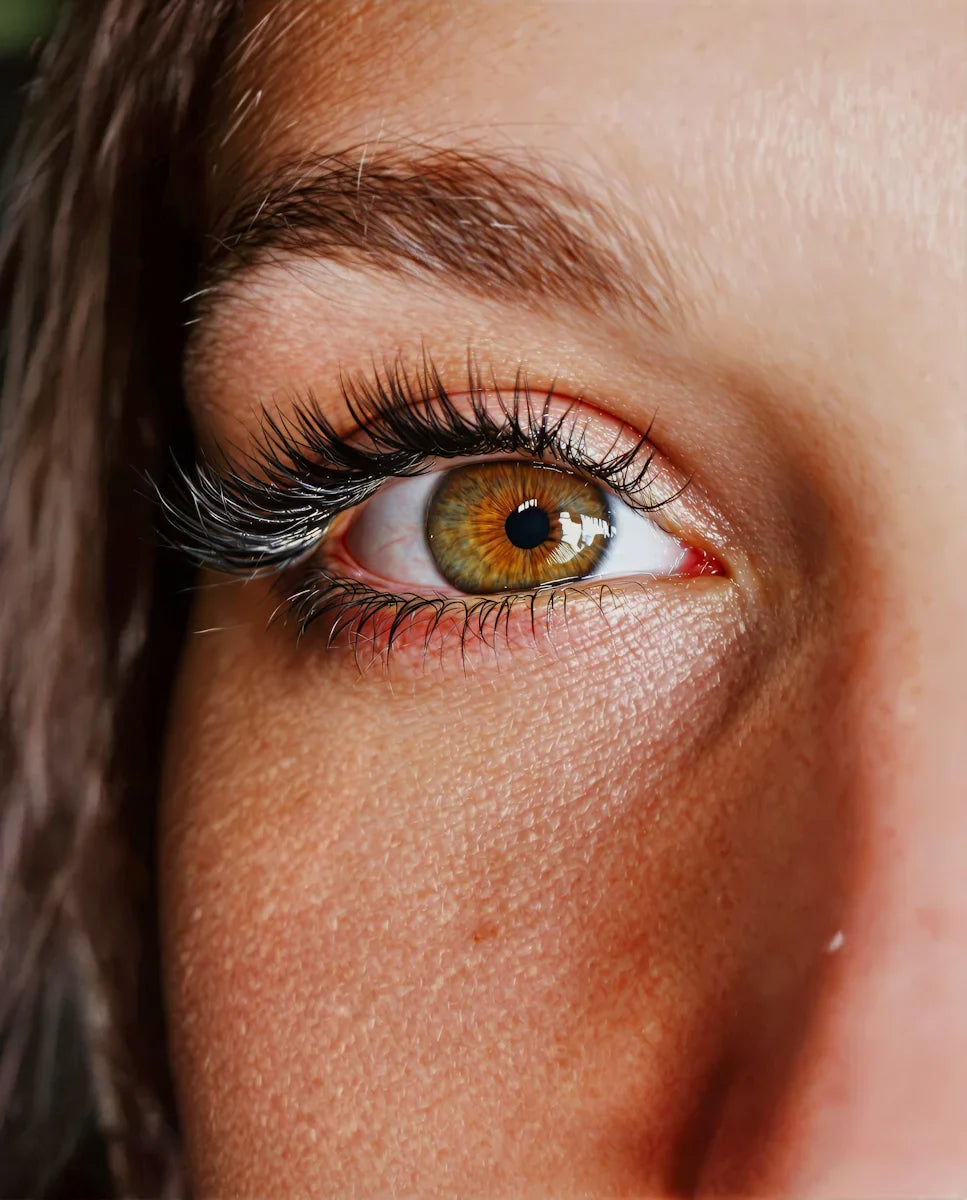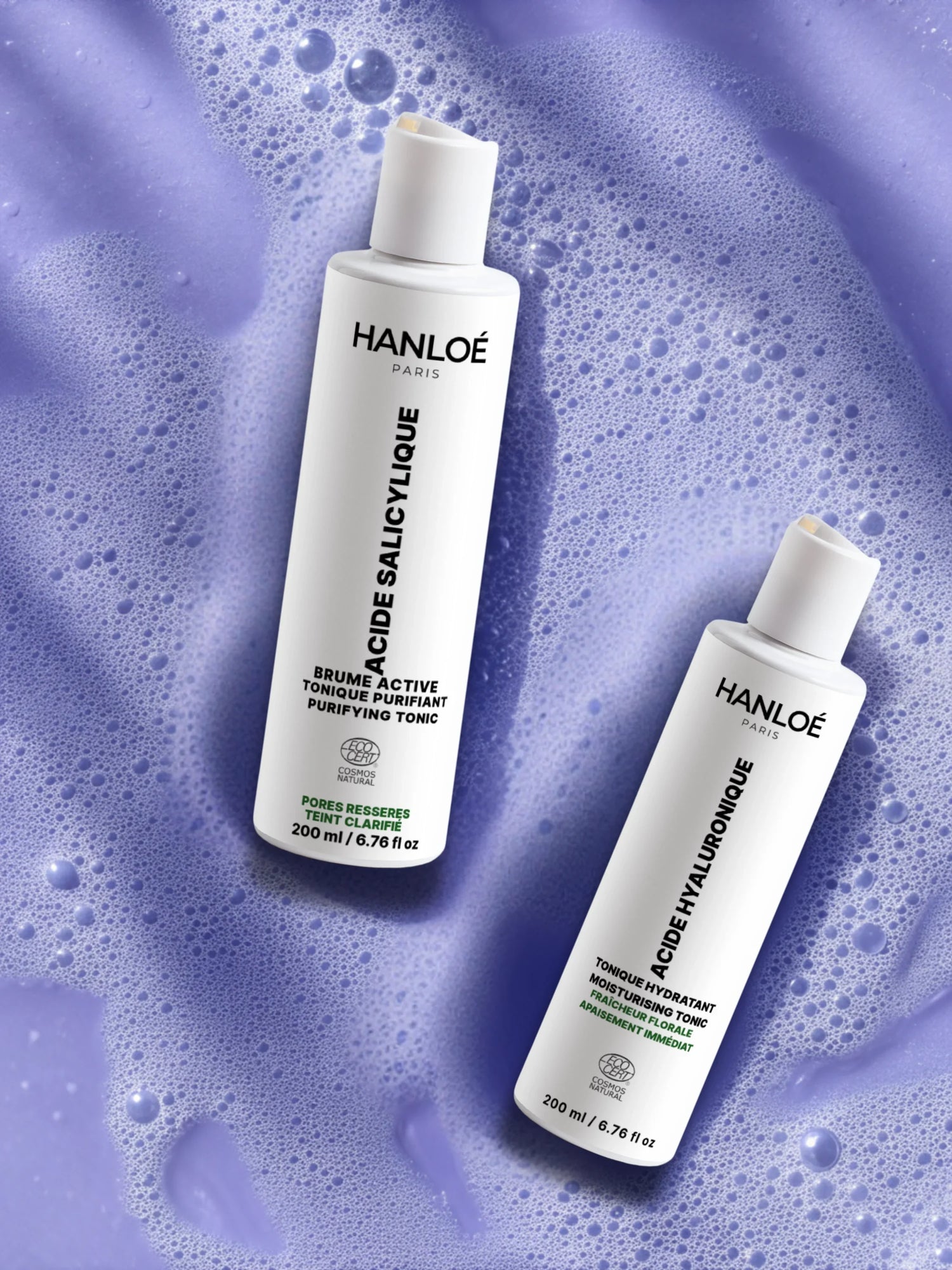The Revelation That Changes Everything: Your DNA Is NOT Your Destiny
Reading time: 12 minutes
You may have already thought to yourself: "My mother got wrinkles at 45, it's genetic, there's nothing I can do about it."
What if I told you that this belief is one of the biggest scientific errors of the 21st century?
Here is the truth that the cosmetics industry is only just beginning to understand: your skin has a memory . Not in your DNA – which remains fixed from birth to death – but in something much more powerful and malleable: your epigenome .
Imagine your DNA as your computer's hard drive: it contains all the instructions. But your epigenome is the software that decides which instructions to activate or deactivate. And contrary to what you've always been told, you can reprogram this software .
Welcome to the era of cosmetic epigenetics – the science that proves your choices today are literally rewriting your skin's story.

Epigenetics for Real Women (Not Scientists)
The Piano Metaphor
Think of your DNA as a piano with 20,000 keys (your genes). Each key can play a note: make collagen, produce antioxidants, repair UV damage.
Your epigenome is the pianist.
He decides which keys to play, at what intensity, and in what order. And here's the twist: this pianist takes his instructions from YOUR environment, YOUR stress, YOUR diet, YOUR skincare routine.
In practical terms? This means that:
- Repeated sleepless nights don't just create dark circles – they literally disable your skin repair genes
- That daily glass of wine doesn't just dehydrate you – it alters the expression of your anti-inflammatory genes.
- This retinol cream doesn't just stimulate renewal – it reactivates dormant youth genes
And the most fascinating thing?
These changes are reversible.
The 5 Epigenetic Traumas Your Skin Never Forgets
1. UV Injury: When the Sun Tattoos Your Genome
Did you think a sunburn would disappear in a week? Scientifically, that's false.
Each intense UV exposure creates what are called "epigenetic marks" – like Post-it notes stuck on certain genes. These Post-it notes can remain for years , even decades .
UV rays alter the methyl groups on your DNA (a process called methylation). These alterations gradually switch off your collagen-producing genes. As a result, your skin continues to age even under an umbrella, because it keeps replaying this traumatic memory.
The silent clue: If you have brown spots that always reappear in the same place, it's an epigenetic signature. This cell "remembers" having been burned.
2. Chronic Stress: Cortisol-Catastrophe
Your tyrannical boss doesn't just age your mind. He literally rewrites the genes in your skin.
The Invisible Waterfall:
- Chronic stress → High cortisol 24/7
- Cortisol alters the acetylation of your histones (the "coils" that wind your DNA)
- This modification disables your repair genes and activates your inflammatory genes.
- Chronic inflammation = inflammaging = accelerated aging
Translation: Your skin literally becomes "addicted to stress" at a cellular level.
Have you ever noticed that after a period of intense stress (divorce, job loss, bereavement), your skin seems to have aged by 5 years? It's not just your imagination. It's your epigenome that has switched into "survival mode" and forgotten to return to "youth mode."
3. Pollution: The Invisible Epigenetic Aggressor
Do you live in the city? Your skin wears an invisible mask: that of fine particles and heavy metals.
PM2.5 (particles < 2.5 microns) penetrate your skin cells, generating reactive oxygen species (ROS) that oxidize your DNA. This oxidation alters methylation patterns. Your cellular detoxification genes become depleted and eventually... shut down.
The butterfly effect: A 2023 study showed that women living within 300 meters of a busy road have 20% more deep wrinkles than those in rural areas – even when controlling for sun exposure. That's the epigenetic impact of pollution.
4. Sugar: The Genetic Caramelizer
You may be familiar with glycation (when sugar "caramelizes" collagen). But did you know that sugar also alters your gene expression?
The vicious cycle:
- Repeated glucose spikes → Systemic inflammation
- Inflammation activates senescence (cellular aging) genes
- Senescent cells produce pro-inflammatory cytokines.
- These cytokines deactivate regeneration genes in neighboring cells.
The blunt translation: This brownie doesn't just give you pimples. It programs your cells to age faster. And this programming persists for weeks.
5. Sleep Deprivation: Genetic Debt
"I will sleep when I am dead" - your skin, however, dies a little with each night that is too short.
Between 10 p.m. and 2 a.m.: peak production of melatonin in the skin. Melatonin activates DNA repair genes and stimulates the expression of antioxidant genes. Less than 6 hours of sleep? These genes remain silent.
The chilling study: Women sleeping <6 hours have epigenetic profiles 11 years older than their chronological age.
The Question That Changes Everything: Can This Memory Be Erased?
YES. And that's where it gets exciting.
Unlike genetic mutations (which are permanent), epigenetic modifications are potentially reversible . It's like reformatting a hard drive without touching the hardware.
But there's a catch: the older the epigenetic memory, the more deeply it's ingrained. A sunburn from two weeks ago? Relatively easy to "erase." Twenty years of smoking? The marks are much more tenacious.
That's why the age at which you start matters enormously.
The 7 Natural Epigenetic Reprogrammers (Science Proven)
1. Sulforaphane (Broccoli, Watercress, Kale)
What he does:
- Activates NRF2 genes (your antioxidant "master switch")
- Restores healthy methylation patterns
- Reactivates cellular detoxification genes
Topical application: Broccoli sprout extracts in cosmetics are epigenetic powerhouses. They contain up to 50 times more sulforaphane than the mature vegetable.
Your action: Look for serums containing "broccoli sprout extract" or "glucosinolate".
2. Resveratrol (Grapes, Red Berries)
Activates sirtuins (longevity proteins). Sirtuins modify histone acetylation. Result: reactivation of youth genes.
The pitfall: Resveratrol oxidizes rapidly. Opt for stabilized formulas in opaque bottles or derivatives like polydatin.
3. Vitamin C (L-Ascorbic Acid)
What it does at the epigenetic level:
- Cofactor of the TET (Ten-Eleven Translocation) enzymes
- These enzymes demethylate DNA = relight genes that have been switched off
- Specifically targets collagen synthesis genes
Why it works: A 2022 study showed that topical application of vitamin C for 12 weeks partially restored the epigenetic profiles of photo-aged skin to "younger" states.
Your action: Vitamin C at 15-20%, pH < 3.5, anhydrous formula for maximum stability.
4. Retinol and Retinoids (Vitamin A)
The most powerful epigenetic weapon
- It binds to RAR/RXR receptors in the cell nucleus
- It directly activates the transcription of hundreds of genes
- Reorganizes the structure of chromatin (the "packaging" of DNA)
What they don't tell you: Retinol doesn't "exfoliate"—it reprograms. Peeling is just a visible side effect of this profound epigenetic upheaval.
The smart protocol: Start low (0.25%), gradually increase. Give your epigenome 3-6 months to "rewire" itself.
5. Green Tea Polyphenols (EGCG)
They inhibit DNMT (DNA methyltransferases) – enzymes that stick silent "Post-it notes" onto your genes. They restore the expression of tumor suppressor genes (anti-aging and protective effect).
Practical application: Green tea, both topically and as a beverage. The effect is synergistic: the epigenome responds better to multidirectional signals.
6. Niacinamide (Vitamin B3)
The discreet outsider:
- Boosts NAD+ (nicotinamide adenine dinucleotide) levels
- NAD+ activates sirtuins
- It also regulates histone acetylation
Why it's underrated: Less sexy than retinol, but acts on the SAME epigenetic pathways, without irritation.
Your recommended dosage: 5-10% niacinamide, morning and evening. Compatible with all.
7. Biomimetic Peptides
Some peptides (like Matrixyl) mimic cellular "distress" signals. This "false alarm" reactivates emergency repair genes. Others (copper peptides) modulate the expression of matrix remodeling genes.
The analogy: It's like doing a fire drill to keep your cells alert and responsive.
The Epigenetic Reset Protocol (12 Weeks)
Phase 1: Epigenetic Cleansing (Weeks 1-4)
Objective: To eliminate accumulated epigenetic "locks".
Morning Routine:
- Gentle cleanser (preserves the microbiome – which also influences the epigenome)
- Vitamin C 15% (demethylation)
- Niacinamide 10% (sirtuin activation)
- Mineral SPF 50 (blocks new UV marks)
Evening Routine:
- Double cleaning (removing pollution = removing aberrant methylation factors)
- Green tea polyphenol serum
- Biomimetic peptides
- Rosehip oil (omega-3/6 fatty acids = epigenetic regulators)
Lifestyle:
- 8 hours of sleep NON-NEGOTIABLE (nighttime reset)
- 16/8 intermittent fasting (cellular autophagy erases epigenetic marks)
- Cruciferous vegetables at every meal (sulforaphane)
Phase 2: REPROGRAMMING (Weeks 5-8)
Key addition: RETINOL
Modified Evening Routine:
- Double cleaning
- Wait 20 minutes (until skin is completely dry)
- Retinol 0.3% (start 2x/week, gradually increase)
- Wait 30 minutes
- Rich repairing cream (ceramides + peptides)
Lifestyle:
- Exposure to cold (30-second cold showers) = activation of heat shock genes
- Meditation 10 min/day (reduced cortisol = fewer epigenetic changes related to stress)
- Supplements: Vitamin D3, Omega-3, Resveratrol
Phase 3: CONSOLIDATION (Weeks 9-12)
Objective: To anchor new gene expressions.
Optimized routine:
- Morning: Vitamin C + Niacinamide + Peptides + Resveratrol + SPF
- Evening: Retinol (now 5x/week at 0.5%) + Repairing agents
Lifestyle:
- Moderate exercise 30min/day (myokine released by muscles influences the cutaneous epigenome)
- Zero refined sugar (eliminating blood sugar spikes = eliminating pro-aging signals)
- Morning sun exposure for 10 minutes (without protection) = circadian synchronization of genes
Measurable Results (What to Expect)
After 4 weeks:
- ↑ Hydration (reactivation of aquaporin genes)
- ↓ Visible inflammation (redness, tenderness)
- More even skin tone (regulation of melanogenesis genes)
After 8 weeks:
- Increased skin density (reactivation of COL1A1 and COL3A1 = collagen genes)
- ↓ Superficial wrinkles (-15 to -25% in measured depth)
- Tightened pores (matrix remodeling)
After 12 weeks:
- Objectively "rejuvenated" epigenetic profile by 3-7 years (measurable by methylation test)
- Increased firmness (elastin + type VII collagen)
- ↓ Pigmentation spots (-30 to -50%)
A clinical trial from the University of Manchester (2024) showed that this type of multi-active protocol reduced the epigenetic age of the skin by an average of 6.3 years after 16 weeks.
The Test That Nobody Offers You (Yet)
Do you know the real age of your skin?
Thanks to advances in epigenetics, it is now possible to measure your skin's biological age via a simple cell sample (non-invasive, by tape-stripping).
The test analyzes methylation patterns on specific genes and gives you:
- Your skin age vs. your chronological age
- The most "aged" areas of your genome
- Targeted asset recommendations
Where can you get it done? Some cutting-edge dermatologists and cosmetic clinics in the US and Northern Europe are starting to offer it (cost: €300-500). At-home kits are expected in 2025-2026.
Why is this a game-changer? Imagine being able to OBJECTIVELY measure whether your routine is working, beyond the simple "I feel like...".
Fatal Epigenetic Errors (What Undoes All Your Efforts)
1. The Yo-Yo of Routines
Changing products every 2 weeks = epigenetic chaos.
Why? Epigenetic changes take 6-12 weeks to stabilize. By constantly changing, you send conflicting signals to your cells.
The rule: 12 weeks MINIMUM before evaluating an asset.
2. Exfoliation Overuse
AHA, BHA, grains, brushes, repeated peels = chronic low-grade inflammation = activation of pro-inflammatory genes = aging.
The paradox: You think you are stimulating renewal, but you are actually activating senescence.
The limit: 2x/week MAX.
3. Neglecting the "Weak" Sun
"It's grey, no need for SPF" = costly mistake.
The reality: UVA rays (which alter the epigenome) pass through clouds and windows. They represent 95% of the UV rays reaching the skin.
The rule: SPF 365 days/year, even in winter, even indoors if near windows.
4. Underestimating Stress
Your €200 cream cannot compensate for chronically elevated cortisol.
The numbers: Chronic stress can accelerate epigenetic aging by 9 to 17 years (Yale study 2023).
The solution: Therapy, meditation, yoga, heart coherence – it's just as important as your serum.
5. Poor Sleep Quality
7 hours of fragmented sleep ≠ 7 hours of deep sleep.
What matters: The phases of deep sleep (slow waves) are those in which epigenetic repair takes place.
Optimization: Cold room (18°C), total darkness, no screens 2 hours before, magnesium bisglycinate at dinner.
The Future: Personalized Epigenetic Cosmetics
2025-2030: What's coming
Avant-garde brands like HANLOÉ Paris are working on:
1. Epigenetic Custom Serums
- Analysis of your methylation profile
- A unique formula targeting YOUR dysfunctional genes
- Estimated price: €500-800 for 3 months
2. Topical Epigenetic Editors
- Molecules capable of demethylating specific genes
- Based on adapted CRISPR technology (without DNA modification)
- Horizon: 2028-2030 for general public use
3. Real-Time Diagnostics
- Smart patches that measure skin gene expression
- Daily adjustment of care according to your epigenetic state
- Integration with AI to predict aging
The revolution:
Switching from "skincare for mature skin" to "skincare for your unique epigenetic profile" on November 15, 2025 at 8:23 am.
The Philosophical Question: How Far Should We Go?
If we can reprogram our skin to look 10 years younger, should we?
Emerging ethical issues:
- Is biological age becoming more important than chronological age?
- Are we creating additional social pressure? ("You're 50 but your skin looks 60, don't you make an effort?")
- Unequal access: These technologies are expensive. There is a risk of widening the gap between those who can "erase" their age and those who cannot.
Cosmetic epigenetics is a tool, not a requirement. Understanding how your environment shapes your skin empowers you – the power to consciously choose your battles.
Wanting healthy, functional, comfortable skin? That's skin health. Wanting to erase all traces of time? That's a personal, legitimate choice, but one that deserves careful consideration.
The Final Word: Your Skin Is Smarter Than You Think
While you were reading this article (approximately 12 minutes), here's what happened inside your head:
- 840,000 skin cells died and were replaced.
- Several thousand epigenetic changes have occurred, influenced by your posture, your breathing, and the light from your screen.
- Your nighttime repair genes have prepared to activate tonight (if you sleep well).
Your skin is a living, intelligent organism, constantly rewriting itself. It listens to every signal you send it – from the serum you apply to the stress you ruminate on, from the salad you eat to the sleep you steal.
Cosmetic epigenetics is not about buying the miracle product.
It involves understanding that you are, quite literally, the author of your skin's story. Every day, every choice, every gesture rewrites a little bit of that story.
So yes, this cream based on retinol and vitamin C can reprogram your collagen genes.
But that 8-hour night, that midday broccoli, that 10-minute meditation, that refusal to answer that toxic email at 11 p.m. – all of that rewrites your epigenome too.
Science has just given you the instruction manual.
Your First Action Today
Here is your mission for the next 24 hours:
- Sleep 8 hours tonight (set an alarm for 8.5 hours before you wake up)
- Eat 2 portions of cruciferous vegetables (broccoli, cauliflower, arugula, watercress)
- Apply your SPF , even if you stay indoors.
- Take 10 minutes to breathe (4 count inhale - 4 count pause - 6 count exhale - 2 count pause - repeat)
These 4 steps will already activate hundreds of repair genes and begin to clear recent epigenetic marks.
Tomorrow, your skin won't be transformed. But your epigenome will have received a clear signal: "We're changing direction. We're rejuvenating."
What if you repeat these 4 actions for 12 weeks?
You won't believe me until you see it in the mirror.










